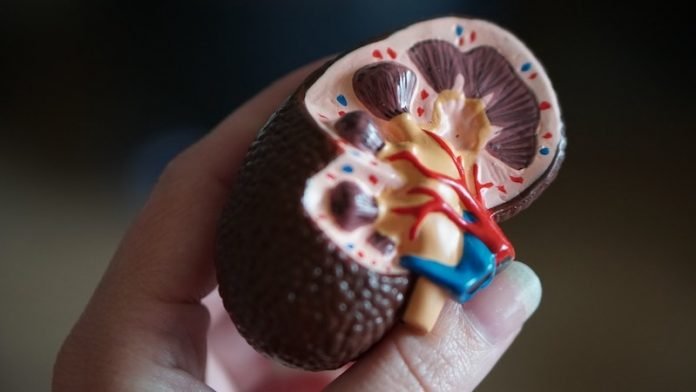
In a new study from the University of Sydney, researchers found the impact of kidney failure, the most serious stage of kidney disease, on life expectancy is not serious for everyone.
They found the impact is much greater for women than men. There is a big disparity in premature death between men and women with kidney failure.
The researchers say the difference in health outcomes between women and men in kidney failure exceeds that seen in heart disease and even cancer.
In the study, the team explored differences among people with kidney failure in Australia and New Zealand by examining health records for over 80,000 people, who identified as either male or female, spanning over 30 years.
Analysis found women with kidney failure had a higher probability of premature death compared to men with kidney failure—losing on average 3.6 years more life than men.
There were also more deaths in women, with 11 times the expected deaths compared to seven times in men.
The impact varied by the age a person experienced kidney failure. Younger women had the greatest loss in life expectancy and survival.
A 15-year-old female with kidney failure will lose on average 33 years of life compared to what is expected in the general population, where a similar male with kidney failure would lose 27 years.
What sets the study apart from other, similar studies, is that the researchers compared survival to what would be expected in the general population, rather than just between people with kidney failure.
In the general population, females live longer than males for many reasons including biology. Other studies have shown chronic kidney disease is more prevalent in women, but men have a faster progression to kidney failure, and men represent most of the population with kidney failure.
However, the findings in this study show this natural survival advantage is entirely lost for women with kidney failure.
The study adds to a growing pool of equity research and awareness examining disparities in health and healthcare.
Many chronic diseases have sex-specific mechanisms where women may not develop the same symptoms as men, which leads illnesses to go unrecognized—which also leads to systematic differences in care.
Other studies have shown women get worse access to healthcare compared to men.
For instance, with treatment for cardiovascular diseases where women are treated at a later stage of disease and may have delayed access to better treatments.
If you care about kidney health, please read studies about these unhealthy eating habits that may increase your risk of dangerous kidney disease and findings of how to protect against kidney disease.
For more information about kidney health, please see recent studies about why processed foods trigger chronic kidney disease and results showing that this diabetes drug may help slow down chronic kidney disease.
The study is published in The BMJ. One author of the study is Dr. Nicole de la Mata.
Copyright © 2021 Knowridge Science Report. All rights reserved.



